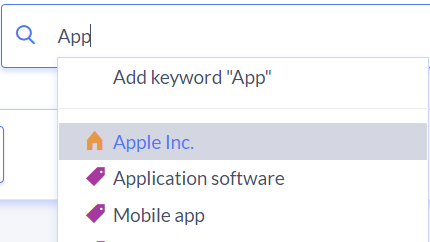What are concepts?
A concept is any word (or a set of words) that has a Wikipedia page. It is an annotation that can be assigned to an article or an event. Concepts can represent entities (people, locations, organizations) or non-entities (things such as a table, personal computer, toy, robot, etc.). All concepts have a unique ID called URI. In Event Registry, we use Wikipedia's URLs as concept URIs. The concept URI for Barack Obama is for example https://en.wikipedia.org/wiki/Barack_Obama.
Each concept has various properties, such as labels in different languages, synonyms, image, and description. Concepts are very important because they allow you to search for things based on the thing itself and not based on the keyword. For example, if you want to find all Spanish articles that mention the White House, using the keyword "White House" will not give you desired results as in Spanish the White House translates to "Casa Blanca". If you use the concept URI for the White House instead of the keyword, you can find mentions of the White House in all languages. You can use concepts by typing in the search input box a part of the concept name and selecting the correct concept from the list of autosuggestions.
Furthermore, searching with concepts provides you with more accurate results. Event Registry is able to read the context in the news articles and distinguish for example, if the news article is about Apple – the company, or an apple – the fruit. By using the concepts, Event Registry will also find the results that mention various synonyms that are commonly used when referring to it (like Apple Inc., Apple, Apple Computer Company, and Apple Computer, Inc.).
If you find that you are obtaining less search results than expected, we suggest that you try searching by the keyword or phrase instead of the concept. This can be especially important in cases when the concept is not easy to recognize or is highly ambiguous.

